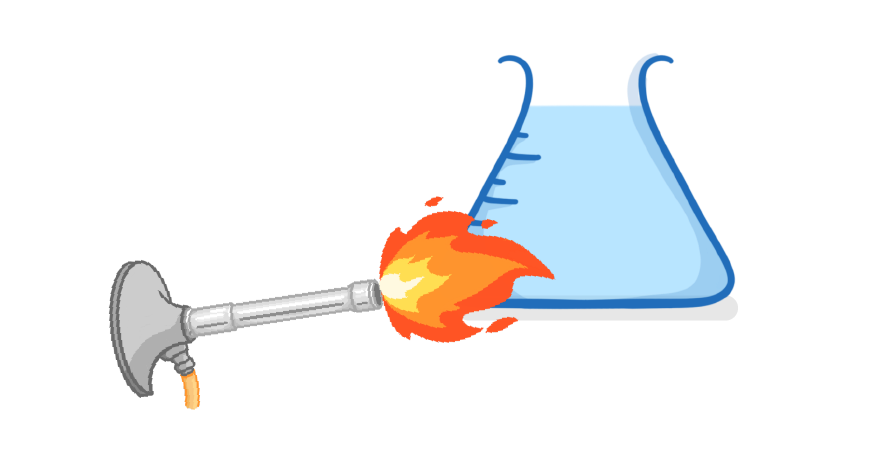Purity & Formulations
This lesson covers:
- What the field of chemical analysis is
- What a 'pure' substance is
- How pure substances can be identified by their melting and boiling points
- What a 'formulation' is
Chemical analysis (also known as analytical chemistry) is about:
The instruments and methods we use to separate, identify, and quantify different substances.
The application of quantum mechanics to chemical systems
The study of carbon-containing compounds
|
In chemistry, a pure substance is a:
Single element or compound that hasn't been mixed with any other substances
Single element that hasn't been mixed with any other substances
Substance that has had nothing added to it
|
Which of the following is an example of a pure substance?
Fruit juice
Clay
Milk
Distilled water
|
True or false? Pure substances always melt and boil at specific temperatures.
True
False
|
Pure water boils at 100°C, and freezes at 0°C.
A student is given an unknown, transparent, colourless liquid. What test could be done to see if the liquid is pure water?
(Select all that apply)
Freeze it, and see if the freezing point is 0°C
See if the liquid can be burned
See if the liquid evaporates
Boil it, and see if the boiling point is 100°C
|
A student tests the melting point of a sample of salol. The sample starts melting at 36°C, but it doesn't melt completely until the temperature is 48°C. Is the sample chemically pure, or impure?
Pure
Impure
|
molecules / elements / mixtures / formula / beaker
Formulations are that have been prepared using a specific .
|
components / function / large / precise
Formulations are made from amounts of different , and each component has a particular .
|
Which of the following would require a formulation?
(Select all that apply)
Paints
Cleaning agents
Distilled water
Medicines
|
Which of the following techniques can be used to separate substances?
(Select all that apply)
Dissolving
Distillation
Crystallisation
Flame tests
Filtration
Chromatography
|

If we test a substance for purity by measuring its boiling point, is that a physical test or a chemical test?
Physical
Chemical
|